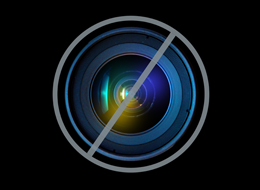
Opening day in the health care cases has arrived. —
The line to get into the Supreme Court for a glimpse of the action started on Fridayand now stretches around the block. Opposing protesters are picketing along the First Street sidewalk. Camera crews have staked their ground to take note of the circus.
And at 10 a.m. sharp inside the Court on Monday morning, the Marshal will bang her gavel, the 400 lucky spectators will rise, and the nine justices will filter in through partings in the courtroom’s floor-to-ceiling red curtains in groups of three.
Over the course of three days, the justices will hear six hours of oral arguments to weigh the challenges to key aspects of the Affordable Care Act that have percolated through the lower courts in the two years since President Obama signed the 2400-page health care reform bill into law.
At the heart of the challenges is the law’s “individual mandate,” which, starting in 2014, requires virtually all Americans to hold health insurance or else pay a penalty on their tax returns. The challengers contend that Congress cannot constitutionally compel an uninsured person to purchase a product in the private market. Thegovernment says the mandate is within Congress’ broad power to regulate interstate commerce because the uninsured’s inevitable consumption of health care services helped create the nationwide problem of unaffordable premiums that the Affordable Care Act seeks to solve.
The justices reserved two hours on Tuesday for that dispute, twice the amount given for nearly every other case that comes to the Court.
But on Monday, the justices will spend 90 minutes weighing whether they should punt this politically charged hot potato away for a couple of years on a technicality.
An 1867 law called the Anti-Injunction Act forbids a person from challenging a tax until that tax has actually been paid. In September, a Democrat-appointed majority on the U.S. Court of Appeals for the 4th Circuit found that the Affordable Care Act’s penalty for not purchasing health insurance constituted a tax and therefore threw the case out under the Reconstruction-era statute. Republican-appointed Judge Brett Kavanaugh of the D.C. Circuit, a prominent conservative whose opinions hold sway with the Supreme Court’s conservative wing, came to the same conclusion in November.
Neither the government nor the mandate’s challengers, however, believe the Anti-Injunction Act prevents the Court from ruling on the mandate’s constitutionality.
The challengers note that Congress and the president should be taken at their word for insisting, to avoid political backlash, that the penalty was not a tax back when the bill was being debated
The Obama administration takes a more complicated view. On Tuesday, it will argue that the penalty is a tax under Congress’ taxing power as an alternative justification to its commerce clause argument for the mandate’s constitutionality. But on Monday the government will say that even if the penalty is a tax under the Constitution, it is notunder the Internal Revenue Code, which controls its Anti-Injunction Act analysis.
The Court, finding it necessary to resolve the split among the appeals courts on this issue, appointed Washington lawyer Robert Long to argue that the Anti-Injunction Act bars the suit until 2015, after the first tax penalties have been paid by those who did not purchase insurance.
In December, Rep. Leonard Lance (R-N.J.) introduced the Americans Need a Health Care Ruling Act to thwart such a defense by specifically exempting the mandate from the Anti-Injunction Act. The bill has gained very little traction, but that could change if the justices refuse to reach the constitutional merits when they hand down their decision by late June.
Long will begin the argument with 40 minutes to present his case. Solicitor General Donald Verrilli will have 30 minutes to put forward the government’s views and Gregory Katsas will have 20 minutes for the states and private plaintiffs.
ALSO ON HUFFPOST:


You must log in to post a comment.